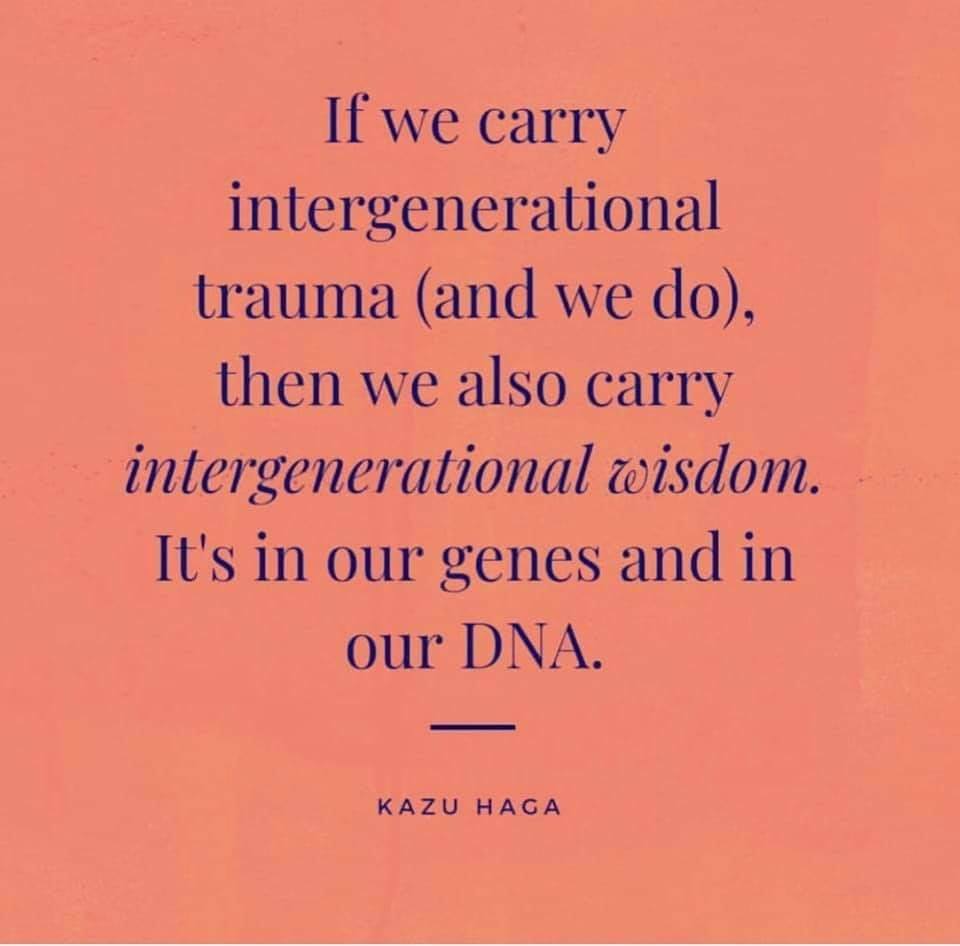
Awhile back, I noticed a theme of having the courage to reach out and connect with others emerge. This month, I’d say that I saw a theme around being willing and ready to receive the help you’re asking for. And in order to do so, you have to understand that “help” can come in the form having to touch base with uncomfortable emotions and experiencing scary change that could and possibly would transform your life.
I thought about a lot of “what ifs”
What if your deep-rooted truth revealed that you are not a victim?
What if you are revealed to be more than a survivor? More than a conquer? More than the labels you’ve internalized and reflect back onto yourself?
I saw this simple, yet highly important message the other day via Bad Girl Mystic and thought, “now how do we take that concept and own the whole truth of it’?

I didn’t need to look any further than my own lived experience, and what I’ve encountered along the way.
I’m quickly approaching the month that will mark my 10 year anniversary in mental health recovery. And I’m not ashamed to admit…I still haven’t got it all figured it out. Of course I don’t! And not only am I okay with that, but it actually keeps me motivated to learn more about myself, how I process the world around me, and how I heal while simultaneously dealing with the constant paper cuts from varying degrees of microaggressions. I’ve come to understand that recovery and healing is a process. It is a process because there are many things we are told about who we “should” be and what healthy is or is not. We have to be almost detective-like in order to uncover what pathways are buried underneath the pathways we are acquainted with.
Imagine the type of healing we can experience when armored with truth.
I believe making peace with the totality of who you are is key if you want to heal the self and the collective selves that make up a society. But you have to be ready and willing to do the work of healing. Because well, life is a ride.
I think it’s helpful to know that you’re going to encounter views contrary to what you thought was the “right” and perhaps only way to go about things. For instance, I only thought of depression one way…a standard westernized definition. Then I encountered a broader definition of the word. In her book, “Women of Color Talk” Dr. Angela Clack defines depression as…
“a disconnect from your authentic and true sense of self, i.e., it is an identity problem; it is a disconnection from one’s health thought life; a disconnection from one’s body and physical self; a disconnection from one’s power source, once’s connection with a higher power; a disconnection from family, friends, and other social supports necessary for successful recovery; and a disconnection from one’s sense of belonging in this world because of racial/gender/ethnic disparities.”
Looking at depression in that way changes how I think about, and how I approach my therapeutic relationships.
In my own book about mental health issues, I debunked the story that “cured” was this set, static destination. I began embracing the idea that a cured life was one that encompassed an ongoing act of care, concern, and responsibility. My recovery and healing process then took on new meaning. It changed my story and the type of hero I was willing to be in my own story. Hint: I became more open, honest, assertive and hopeful.
Life became more beautiful to me.
Seeking after the truth of a “cure” made my life more meaningful, even as truth feels so elusive. Because as I seek it I realize so many things going on outside of my tunnel vision. When I look around and stop chasing the single concept of what I think I should look like when I’m “healed” or rather what I should have looked like if I wasn’t “ill”, I see that my journey in and of itself is just as awe-inspiring as my proverbial finish line. I see that my journey isn’t only my ugly past, my ACE score, that I still kinda suck at martial arts 😉 or that I still struggle with anxiety and/or depression. No, my journey is also that I am persistent, that I am resilient, that I’m growing and that I see my fears and I press on anyway. But even better, is that I am more than just the sum of happy days and trigger days.
I love this combination of quotes by author, Chimamanda Ngozi Adichie. In her TED talk she says that,
“The single story creates stereotypes, and the problem with stereotypes is not that they are untrue, but that they are incomplete. They make one story become the only story.” Then she goes on to say that, “Power is the ability not just to tell the story of another person, but make it the definitive story of that person…Start the story with the arrows of the Native American, and not with the arrival of the British, and you have an entirely different story. Start the story with the failure of the African state, and not the colonial creation of the African state, and you have an entirely different story.”
The single story being told about Indigenous peoples of this land I’ve often heard (in a westerner context) is that of drunkenness and laziness. I’ve also heard a similar story about the people of African decent…I’m still not entirely sure if these stereotypes came about during or after the free and forced labor of my ancestors. Negative connotation is often a single story of poor people, people who immigrate to other countries, what said immigrants are told about the people who were already here but are scapegoated, people who work multiple jobs and haven’t received advanced degrees, people with advanced degrees who have overwhelming debt with no job or jobs with very little pay that have nothing to do with their schooling…I can go on. And when I was younger, I fell for the okie doke. I know better now.
I learned that the single story stunts healing and growth.
I realized how harmful “if I did it so can you” can be. This is especially true when it’s used to justify (read blame) the attitude and treatment of others based on socio-economic position. I realize how harmful that is when it comes to mental health. And I see it all the time in mental health communities. “I’m better than you because I can function at a standard-enough level of “normal” AND be a contributing member of society even though I have *insert diagnoses*, and since you can’t, there’s something wrong, lazy, “bad” about you.” Not only is it harmful, it’s often times untrue and an incomplete story that disregards the entirety of one’s story.
My nonprofit is built around the concept of serving people who are often times the so-called “high-functioning” and contributing members of society (business owners and entrepreneurs), but them creating jobs and circulating dollars in their communities isn’t their only story. Their story also tells the tales of substance abuse, work-alcoholism, chronic stress, dysfunctional upbringings, and suicides. If there’s two sides to their coin, why couldn’t there be two sides to the coin of the person who isn’t what society deems as “worthy”?
In order to make peace with a history, we cannot disregard any part of it, especially the parts that don’t fit into the narratives of what story we wish to tell so to soothe our egos, or lid a box we’ve decided to group a people in. Healing cannot happen in a singular story. Healing happens as we unpack and process the layers of many stories we’ve been told, told ourselves, and project onto others.
Until Next Time…Peace!
Oh! By the way, if you want to learn more about the blogger of this post feel free to check out my about page.
Donations welcomed and appreciated: This site is ads-free and runs on the sheer power of my love and determination. If what I share brings you fresh perspective, inspiration, new resources, and/or value of any kind, please consider becoming a patron of this blog with a monetary donation.
